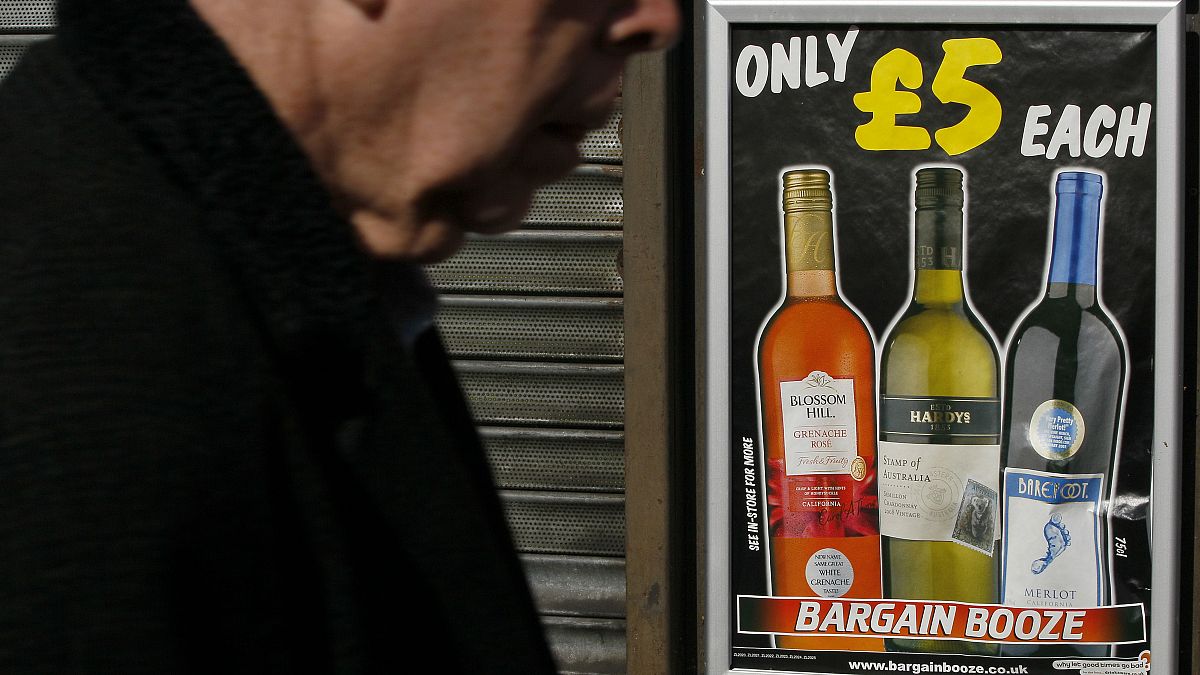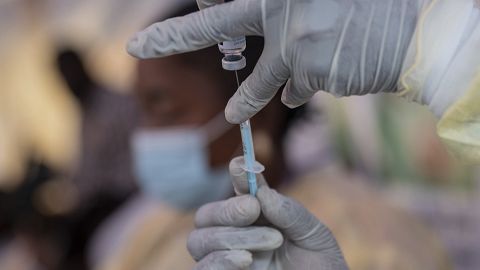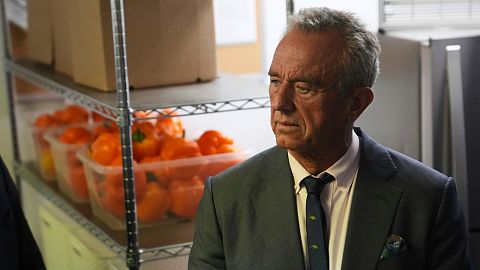Scotland saved lives by raising prices on cheap supermarket alcohol, but the policy isn’t a silver-bullet solution.
When Scots walked into their local supermarket in late September, the cheapest bottle of whisky they could find was £14 (€16.80). The next day, it was £18.20 (€21.84).
The change is the result of Scotland’s minimum unit pricing (MUP) law, which set a floor price for alcohol bought at supermarkets to try to discourage the kind of risky drinking that lands people in the hospital.
First implemented at £0.50 (€0.60) per unit in 2018, lawmakers agreed in April to raise the floor to £0.65 (€0.78) this autumn to match inflation.
It also marked an important moment in a country that continues to struggle with the health consequences of excessive drinking.
“I saw [low-cost alcohol] cut a swathe through my patients,” said Dr Peter Rice, a psychiatrist who was working at an alcohol clinic in rural Scotland when he noticed a worrying trend around the year 2000. Rates of fatal liver disease were rising, just as older men with alcohol problems were increasingly shifting from beer or whisky to very strong, dirt-cheap cider they drank at home.
“You could see the tide shifting,” Rice told Euronews Health.
“Once this stuff started to appear on the shelves, they just morphed over to that and they drank more heavily …. [and] that really brought home to me the importance of price”.
Along with other doctors and public health advocates, Rice started campaigning to raise the floor price for the cheapest alcohol. They weren’t after bars or restaurants, which already have a markup, but rather the bottom-barrel supermarket booze.
It took more than a decade to pass MUP legislation, but today it is the most comprehensive alcohol pricing policy in Europe – and it appears to be paying off despite the severity of the problem.
An analysis from Public Health Scotland (PHS) and the University of Glasgow shows that although alcohol-related deaths have continued to increase across the UK in recent years, they’ve risen at a slower pace in Scotland.
MUP has driven alcohol-related deaths down by an estimated 13.4 per cent (156 deaths per year) and alcohol-related hospitalisations down by 4.1 per cent (400 admissions per year) through the end of 2020, according to the analysis.
Most of the averted deaths were related to liver disease and concentrated among the poorest neighbourhoods in Scotland.
However, the policy doesn’t appear to have helped reduce deaths from alcohol poisoning. And last year, 1,277 people died from alcohol-specific causes, the highest level since 2008.
“What we drew from that was that it was delivering benefits to people who were at a very high risk of death … but alone, it's not enough as a policy to reverse the trajectory that we're on,” Dr Tara Shivaji, a PHS consultant focused on alcohol and drugs, told Euronews Health.
European pricing policies for alcohol
The Scottish policy has inspired others nearby, including Wales and Ireland, which introduced MUP for alcohol in 2022. Meanwhile, Northern Ireland’s health ministry said earlier this month that it is moving forward with its own MUP policy.
A few former Soviet countries also have minimum pricing for some types of alcohol, like vodka.
Others, for example, the Netherlands, have debated MUP in recent years.
The World Health Organization (WHO) wants other countries to consider it as well, but it hasn’t been on the agenda in most places.
Many countries already impose heavy taxes on alcohol, and take other steps to address retail costs. For example, England bans supermarkets from selling alcohol at below-cost prices – a strategy sometimes used to get people in the door.
But setting floor prices goes even further.
“For alcoholic beverages that have a very low price, that are very cheap, even a large tax doesn't increase the price to the point that would put off consumers,” Franco Sassi, director of Imperial College London’s centre for health economics and policy innovation, told Euronews Health.
Minimum pricing does have some drawbacks. Because it isn’t a tax, it doesn’t generate money for the government that could be used to fund alcohol abuse programmes.
And while many people are discouraged by higher prices, those with alcohol dependence may end up prioritising booze over household necessities anyway.
Shivaji said that while it’s important to keep an eye out for the “unintended consequences” of this kind of policy, Scotland hasn’t seen an increase in black market or cross-border liquor sales, and people haven’t been shifting from alcohol to drugs as a result of MUP.
Other strategies to reduce harmful drinking
Beyond pricing, Sassi pushed for health warning labels on beer, wine, and liquor, which will be required in Ireland from 2026 but were roundly opposed by the alcohol industry at the EU level.
Meanwhile, Shivaji said treatment and other resources should also be made available to help people quit drinking.
But they acknowledged that it is an uphill battle to impose any kind of restrictions on alcohol.
“The science is very clear today – alcohol is harmful from any level of consumption,” Sassi said.
“But alcohol is so ingrained in our societies and in our culture that it's extremely difficult to persuade people that we can do without it”.
Meanwhile, Rice said tackling affordability, whether through taxation or minimum pricing, is key to meaningfully reducing the health risks from alcohol.
“You can do all the rest of the stuff, and educate the public and so on and so forth,” Rice said.
“If they then stroll into a store and beer is 30 per cent off, that's very likely to undermine all the other stuff that you do. So I think price controls enable the other things to have a greater effect”.
















